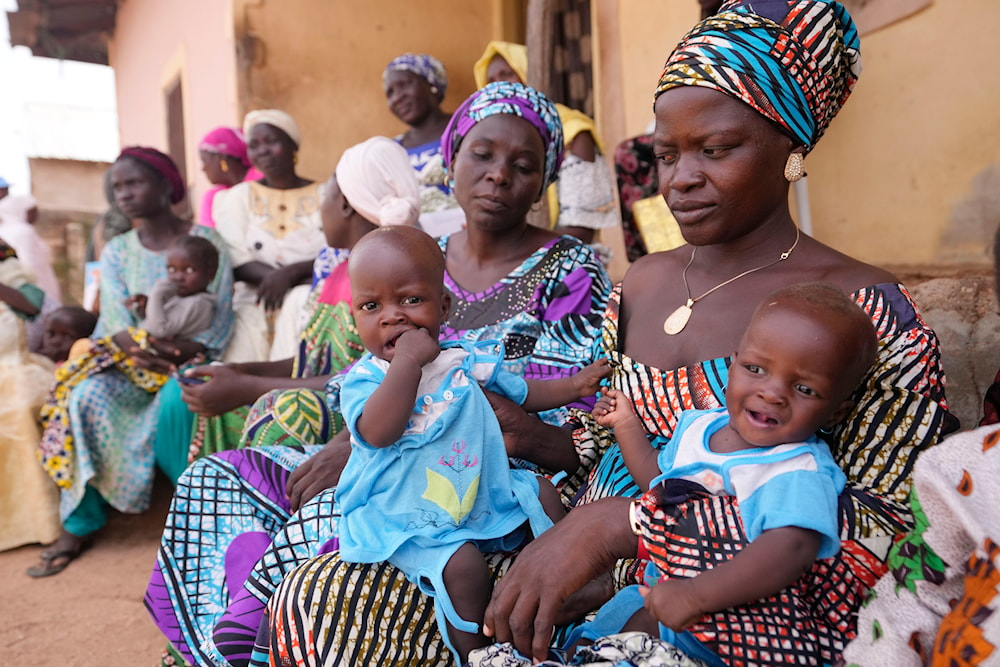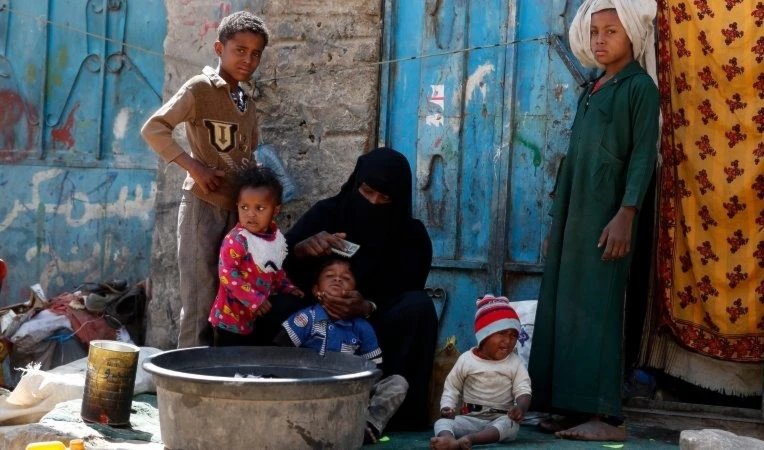600 Nigerian children dead due to malnutrition amid foreign aid cuts
More than 600 malnourished children have died in northern Nigeria within six months, according to MSF, with aid cuts, rising costs, and collapsing health systems fueling the health crisis north of the country.
-

Dorcas Simon, 38-year-old, plays with her twin daughters during a food training event in Kaltungo, Nigeria, Sunday, June 2, 2024. (AP Photo/Sunday Alamba)
More than 600 malnourished children have died in northern Nigeria over the past six months, according to Doctors Without Borders (MSF), amid a mounting crisis exacerbated by severe funding shortfalls and economic collapse.
MSF reported a 208% increase in cases of severe acute malnutrition with nutritional oedema (swelling caused by severe malnutrition) in its facilities between January and June 2025 compared to the same period last year.
"Unfortunately, 652 children have already died in our facilities since the beginning of 2025 due to a lack of timely access to care," the organization stated on Friday.
Nigeria's worsening malnutrition crisis
Northern Nigeria is facing one of the gravest malnutrition emergencies in its history. According to the latest Cadre Harmonisé report, 30.6 million people across 26 Nigerian states are projected to face acute food and nutrition insecurity during the June–August lean season, more than the entire population of Australia. This includes 5.44 million children under five, with over 2 million suffering from severe acute malnutrition requiring lifesaving treatment.
MSF highlighted the dire situation in Katsina State in northwestern Nigeria, where nearly 70,000 children were treated for malnutrition by June, including nearly 10,000 in critical condition. A screening of 750 mothers found that more than half were acutely malnourished, with 13% suffering from the most severe form.
Impact of foreign aid cuts
The crisis has been exacerbated by a dramatic reduction in international aid. In July 2025, US President Donald Trump signed legislation slashing $9 billion in foreign aid, of which $8 billion affected overseas assistance programs. The shutdown of the United States Agency for International Development (USAID) on July 1, after 63 years of operation, had catastrophic effects, especially in northeastern Nigeria, where USAID had supported food, shelter, and healthcare initiatives.
European donors followed suit, with the United Kingdom, France, and Belgium all reducing their aid contributions, further straining humanitarian operations. As a result, MSF and other agencies have faced "massive budget cuts" that significantly curtailed their capacity to provide lifesaving care.
The World Food Programme (WFP) has warned that it would suspend all emergency food and nutrition aid for 1.3 million people in northeast Nigeria by the end of July due to critical funding shortages. WFP’s $130 million appeal for Nigeria is only 21% funded, leading to the closure of over 150 nutrition clinics in Borno and Yobe states.
MSF emphasized that the scale of the crisis "exceeds all predictions" and called for urgent international mobilization to prevent further catastrophic loss of life. While security concerns persist in parts of the country, particularly in the northwest and northeast, humanitarian organizations stress that the primary drivers of the current crisis are economic collapse, inflation, climate-related shocks, and the withdrawal of aid.
View this post on Instagram

 3 Min Read
3 Min Read










